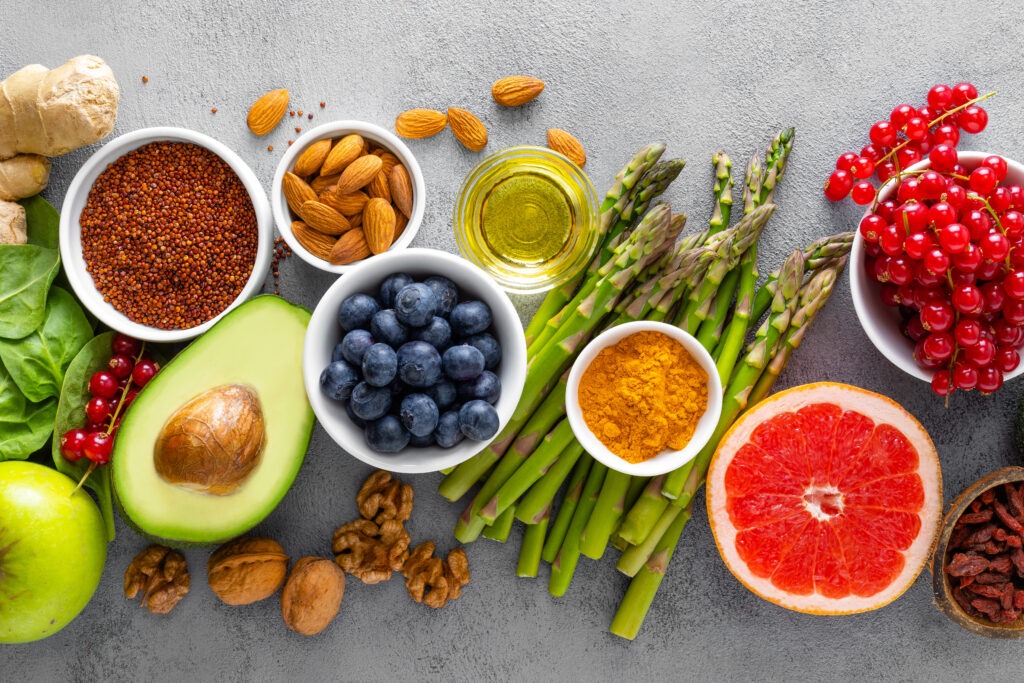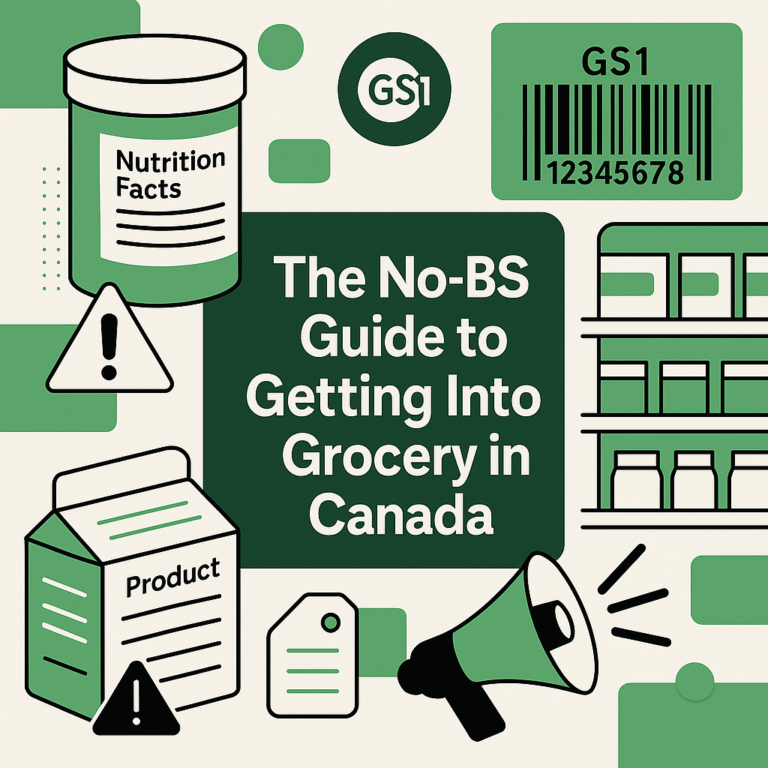Fighting chronic inflammation is one of the best ways to ward off disease. Most major chronic illnesses can be linked back to a history of widespread inflammation in the body. Luckily, reducing chronic inflammation can be safely and easily done through lifestyle changes, especially through our food choices.
What is chronic inflammation?
If you have a food intolerance or have ever eaten something that your body did not agree with, you probably noticed the effects immediately: you got a stomach ache, nausea, bloating, maybe your skin broke out in hives, or you had an allergic reaction. These are all acute reactions to a foreign substance (in this case some food ingredient) that your body sees as dangerous. To protect you against these potentially threatening substances your body goes into attack mode. Your immune system fires up and fights up and gets ready to fight any invaders. This is a natural response and one that keeps us safe and alive! But what happens when immune responses are on high alert over months or years?
Chronic Inflammation: The birth of most major diseases
A chronically stressed immune system creates chronic inflammation in the body. Acute inflammation, as we mentioned earlier, is the body’s natural response to injury, tissue damage, or infection. We need it to survive and heal. But when inflammation becomes chronic it means that our immune system is on overdrive and will overreact to almost anything. Check out this Harvard publication to learn more about how to fight chronic inflammation and healthy habits to support your body.
Modern science has placed chronic inflammation as a root cause of most chronic diseases including cancer, heart disease, metabolic syndrome, diabetes, Alzheimer’s, autoimmune diseases such as lupus, rheumatoid arthritis, Hashimoto’s thyroiditis, fibromyalgia, and more.
High levels of chronic inflammation have also been linked to mood disorders including depression, anxiety, bipolar disorder, and borderline personality disorder.
This all sounds like bad news, but it doesn’t have to be. When it comes to health knowledge is power, and with just a little more awareness about what we consume, we can help ease the stress in our bodies and reduce inflammation so that we can live a healthier life and decrease our risk of developing a chronic condition that could potentially really affect our quality of life.
The link between diet and inflammation
The foods we choose to consume have a direct link to our inflammation levels. Our food choices alone can either fight inflammation or feed it.
Check out these easy-to-follow tips that can help protect your body against chronic inflammation. Here are some foods to limit and some to enjoy in order to support your body and reduce the risk of chronic disease.
Inflammatory Foods
We are not here to tell you what to eat or not to eat, and unless you are already suffering from a chronic disease and need to take more dramatic action, balance and moderation is always a great way to go. That being said, these are some of the most inflammatory foods that you may want to avoid or limit.
Sugar
You probably know this already, but sugar is definitely generally over-consumed in the standard American diet. Sugar, (especially refined when refined and processed) is highly addictive, quickly absorbed by the body, and has little to no nutritional value. Diets high in sugar have been proven to lead to obesity, alter the gut lining (with directly affects the excessive immune reactions that cause inflammation), and generate insulin resistance.
Limiting or avoiding added sugar altogether is probably one of the best things we can do for our health. Staying away from refined sugars such as high fructose corn syrup and your regular table sugar is always a good call. You can opt for healthier choices in moderation such as maple syrup, honey, or black-strap molasses.
Refined Carbs
Yes, carbs taste great and we all love them, but refined carbohydrates are another big source of inflammation. White bread (and even many “whole wheat” and “healthy” bread), pastries, and pasta are goodies you may want to consider limiting in your diet.
Breakfast cereals are also one of the most processed sources of refined carbs you can get out there, and they are usually packed with sugar, so you may wanna switch these from the “healthy breakfast” label to the“sporadic dessert” category.
Vegetable Oils and Processed Fats
Human-made trans fats are particularly dangerous and have been proven to be associated with several types of cancer. These products have been shown to feed inflammation due to their high content of Omega-6 and minimal content of Omega-3s.
Some vegetable oils and products with vegetable oils as their base (margarine and vegetable shortening) contain these manufactured trans fats. A lot of companies have started to hide trans fats under other less recognizable ingredients, namely “partially hydrogenated oils” so watch out for those too.
Artificial Sweeteners
If we are totally honest, you are better off eating real sugar than some of these chemicals. There is reason to believe that sweeteners like aspartame or sucralose (Splenda) are linked to cancer, autoimmune diseases, and multiple cognitive issues. And for those who think these are a good way to beat sugar addiction, think again. Artificial sweeteners trigger the same reward systems in the brain as sugar. This can fuel and even worsen any sugar addiction, making sugar cravings stronger and withdrawal symptoms worse. These are sadly found in foods labeled as “health foods” including protein powders, protein bars, and weight-loss shakes as well as sodas and candy labeled as “diet” or “sugar-free”.
Alcohol
This probably doesn’t come as a surprise. Alcohol consumption has been shown to have direct effects on the immune system and inflammation markers. Although moderate alcohol consumption, especially wine, is believed to be linked to some health benefits, excessive alcohol intake, no matter what kind, rises inflammation markers. As with most things, moderation is key.
Processed Foods
Processed foods, in general, tend to be heavy on added ingredients including preservatives, artificial flavours, and other chemicals that are harmful, especially if consumed regularly. MSG and other potentially harmful additives such as artificial colours and flavours, and preservatives such as sodium benzoate and sodium nitrite, are present in processed foods including fast foods and pre-packaged pastries and snacks, cured meats, lunch meats, etc.
Anti-inflammatory Foods

Now that we got through the not-so-good news let’s focus on some of the foods that are great at supporting the body and fighting off unwanted inflammation. Even if some of your favourite treats fell in the ‘foods to limit’ list, the good news is that there are plenty of healthy ingredients out there to make delicious meals that can also help ward off chronic disease. The following are some (and by no means all) of the foods that can help the body fight inflammation and maintain optimal function.
Healthy Fats
Fats have had a bad reputation for too long, but the truth is that fats are necessary for optimal brain and hormone function. The fear of fat that leads to a low fat, high carb diet may cause more harm than good. Healthy fats should be a pillar of a balanced diet despite the bad rap that fats have unjustly obtained. Healthy fat options include non-refined olive oil, coconut oil, and avocado oil, raw nuts and seeds, avocados, coconut products, olives, and animal fats
Fruits Rich in Antioxidants
Oxidation is a normal part of the metabolic process where cells produce free radicals. An excess of free radicals is believed to be a cause of most known diseases. A diet rich in antioxidants can give our system a little boost in fighting those sneaky free radicals. Berries and citrus fruit are a great source of antioxidants to add to your diet.
Fatty Fish and Omega-3
Omega-3s are one of the best antiinflammatory nutrients out there. These healthy fatty acids can offset the inflammatory effects of excess Omega-6 from processed fats and foods in our diets. They help reduce the risk of cognitive decline and protect the body against heart disease, Alzheimer’s, and autoimmune conditions like rheumatoid arthritis.
Studies have also proven Omega-3 fatty acids to help alleviate symptoms of affective disorders like severe depression and chronic anxiety.
Anti-inflammatory Spices
Garlic, cardamom, cinnamon, and ginger are great anti-inflammatory spices. Turmeric is also an anti-inflammatory superstar. Cooking with turmeric or taking curcumin supplements has been proven to help fight inflammation and balance the immune system. If you want to read a little more about spices that can help your immune system check out our post: Four Spices to Boost Immunity.
Leafy greens and Veggies
Cruciferous vegetables like broccoli, Brussels sprouts, cauliflower, and cabbage, and leafy greens like kale and spinach contain high levels of antioxidants that can help neutralize those free radicals that, if left to accumulate, can cause disease.
Add healthy fat to your diet.





